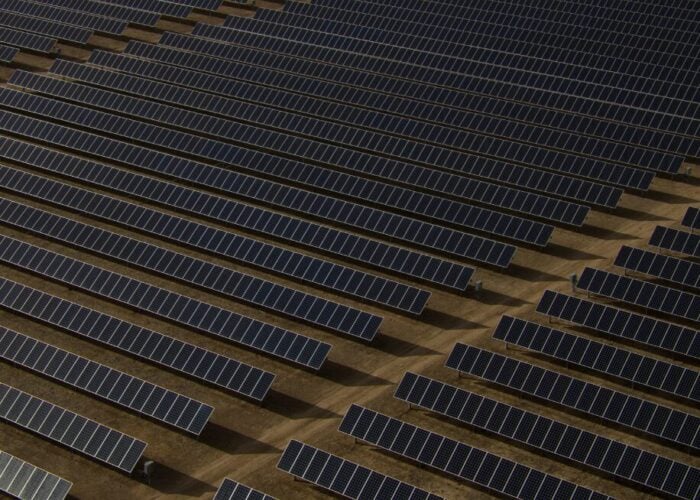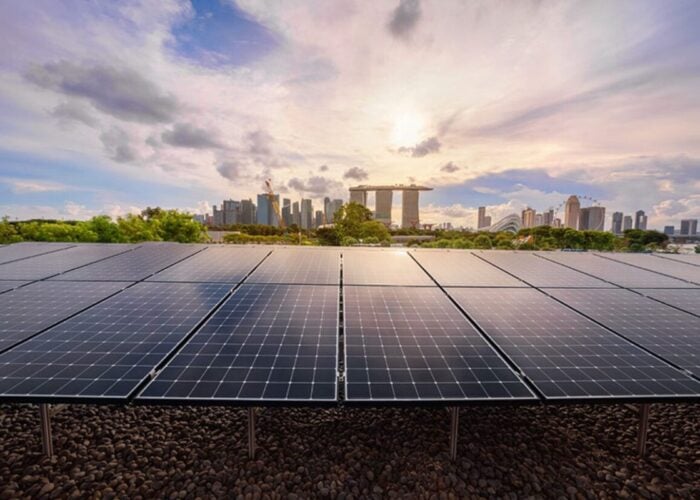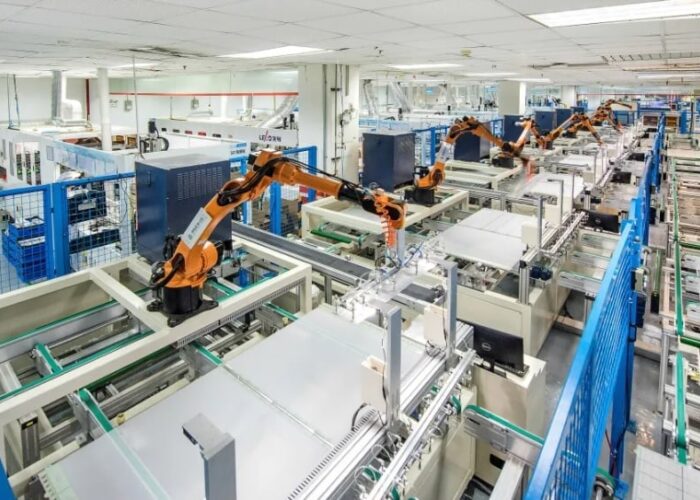
The upcoming Global BC Tech Summit and bifiPV2025 workshop in Yiwu on 24-25 November marks a historic moment for the solar industry as it consolidates advances in bifacial back contact (BC) technology and charts a course toward its wider commercialisation. Organised collaboratively by AIKO and ISC Konstanz, the event builds on the momentum generated by bifiPV2024 in Zhuhai, where over 400 top-tier managers, scientists and industry leaders gathered to explore the next big leap in PV innovation.
At bifiPV2024, the industry laid out ambitious goals: reaching module efficiencies of over 25%, with projections pointing towards 26% in the near future. Spearheaded by the white paper produced jointly by AIKO and LONGi—presented at Intersolar 2025 in Munich—these discussions have set a clear narrative: bifacial BC technology is destined to dominate the PV market, starting around 2027.
Try Premium for just $1
- Full premium access for the first month at only $1
- Converts to an annual rate after 30 days unless cancelled
- Cancel anytime during the trial period
Premium Benefits
- Expert industry analysis and interviews
- Digital access to PV Tech Power journal
- Exclusive event discounts
Or get the full Premium subscription right away
Or continue reading this article for free
This shift is driven by the technology’s unique advantages, notably its potential to deliver higher efficiencies, exceptional reliability and a lower overall cost compared to traditional front contact and other newer solutions like perovskite tandem cells, which still require years before gigawatt-scale commercialisation. However, BC technology offers a promising platform for 3-terminal and 4-terminal tandem technologies in the future, which offer numerous advantages compared to 2-terminal technology.
The core strength of BC technology lies in its ability to combine high efficiency with robust performance. It offers high-quality electrical output, outstanding durability and an unconventional reverse behaviour that makes it highly adaptable under different operating conditions. Such features, combined with ongoing innovations in manufacturing processes—such as laser-based selective processing and simplified stringing—have dismantled many of the former barriers to large-scale adoption.
In fact, the first commercial implementation of BC modules in China was achieved by ISC Konstanz in partnership with SPIC in 2018, marking a significant milestone that demonstrated the practical viability of this technology.
The industry’s trajectory indicates a decisive move toward BC cells as the dominant technology following the decline of TOPCon-based modules. Experts from AIKO, LONGi, and ISC Konstanz highlight that, through continuous innovation, the next generation of BC cells will not only achieve higher efficiencies but also reduce costs, making them ideal for utility-scale applications. The inherent advantages of high reliability and quality make them the preferred choice for long-term profitable performance, especially when integrated with energy storage systems.
The Yiwu workshop aims to be a comprehensive platform for sharing technological advances, market strategies and manufacturing insights. After initial speeches by local political leaders, the event will feature keynote addresses providing strategic perspectives on the future of bifacial BC technology.
A CTO-level panel featuring prominent leaders from AIKO, LONGi, the RCT Group and other major companies will then discuss their roadmaps, highlighting both technological innovations and strategic market initiatives. The technical sessions will delve into material developments, wafer and ingot quality, advances in cell design and international R&D efforts, showcasing the global landscape of innovation.
Attendees will explore the latest in manufacturing technologies, materials and process integration, with a focus on how to optimise module fabrication for high efficiency, low cost and high reliability. Characterisation, simulation and qualification standards will also be central topics, ensuring that production quality and long-term performance are prioritised.
The workshop will feature success stories from installations of BC systems worldwide, demonstrating the real-world benefits of this technology. The event will close with an invitation from GÜNAM, a Turkish research institute, to host the next bifiPV workshop in combination with SilcoNPV and nPV in Ankara, Türkiye on 13-17 April 2026. Following the workshop, AIKO will organise a factory tour in Yiwu on 26 November, giving participants firsthand insight into the latest manufacturing processes and innovations in ABC cell and module production.
As the PV industry continues to evolve, the potential of bifacial back contact technology remains a beacon of innovation and progress. With efficiencies expected to climb further, costs to decline and reliability to soar, BC technology is poised to redefine the industry landscape and accelerate the global energy transition.
The BC Tech Summit/bifiPV2025 workshop offers a unique opportunity for PV specialists, industry leaders and researchers to collaborate, share ideas and shape the next chapter of solar power. We look forward to welcoming the global PV community to Yiwu—a hub for innovation and the future of solar energy. We aligned with the organisers of CSPV (27-29 November in Huainan, Anhui, China) to open up the possibility of combining these two leading events in one business trip, thereby saving valuable travel time and efforts and make the most of it. So come to China in the week from 24-29 November to learn about new n-type tech on all levels.






